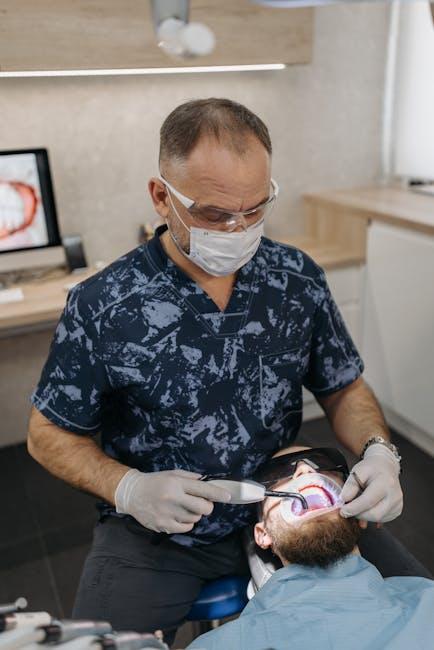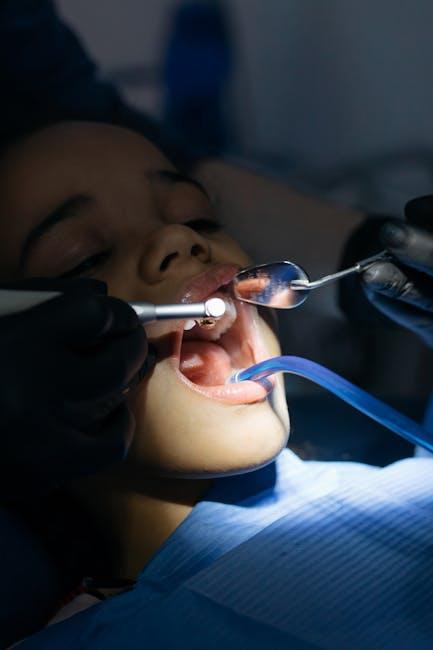
Do You Need Fluoride Treatment After a Teeth Cleaning? Dental Experts Weigh In
After a professional teeth cleaning, many patients ask their dentist the same question: “Do I need a fluoride treatment?” While fluoride is widely known to strengthen teeth and prevent cavities, not everyone automatically receives or needs this treatment after every cleaning session. In this article, dental experts clarify when fluoride is necessary, its benefits, potential risks, and how to make the most of fluoride for optimal oral health.
Understanding Fluoride and Its Role in Dental Health
Fluoride is a mineral that helps repair and strengthen tooth enamel — the outer protective layer of your teeth. It can reverse early stages of tooth decay and make teeth more resistant to future acid attacks caused by bacteria in plaque.
How Fluoride Works:
- Remineralization: Fluoride aids in replacing lost minerals in enamel caused by acids.
- Decay prevention: It makes teeth more resistant to decay from sugars and acids.
- Antibacterial effect: Fluoride inhibits the growth of harmful oral bacteria.
Do You Need Fluoride Treatment After Every Teeth Cleaning?
The straightforward answer: Not necessarily. Whether fluoride treatment is needed depends on several factors including your age, cavity risk, diet, oral hygiene habits, and even local water fluoridation levels.
Insights from Dental Experts
Dentists emphasize the importance of individualized care. According to Dr. Laura Jensen, DDS, a dental hygienist based in Chicago, “Fluoride treatment after cleaning is recommended primarily for patients who are at moderate to high risk for cavities. If your teeth are healthy, and you maintain good oral hygiene with fluoridated toothpaste and water, professional fluoride applications may not be required at every visit.”
Who Benefits Most from Post-Cleaning Fluoride?
- Children and teens with developing teeth
- Adults with a history of frequent cavities or gum disease
- People with dry mouth (xerostomia) due to medications or health conditions
- Individuals who consume sugary or acidic foods frequently
- Patients with dental braces or other appliances
Benefits of Fluoride Treatments After Teeth Cleaning
Getting fluoride treatment after your dental cleaning can provide several advantages, especially for individuals at risk of cavities.
- Strengthens Enamel: Fluoride forms a stronger, more acid-resistant mineral in enamel called fluorapatite.
- Speeds Enamel Repair: Professional fluoride treatments accelerate remineralization after cleaning-induced minor enamel wear.
- Reduces Sensitivity: It helps block the tubules that can cause tooth sensitivity after cleaning.
- Prevents Future Cavities: Lower risk for decay keeps your smile healthier long-term.
Potential Risks and Myths About Fluoride Treatments
While fluoride is safe and effective when used properly, some concerns and misconceptions exist:
- Fluorosis Risk: Excessive fluoride exposure in children during tooth development can cause staining or mottling (fluorosis). This risk is minimal with controlled professional applications.
- Too Much Fluoride: Overuse can cause mild stomach upset or irritation if swallowed, hence fluoride treatments are applied carefully by dental pros.
- Myth – Fluoride is Toxic: In regulated doses, fluoride is safe; toxicity occurs only with extremely high ingestion.
Practical Tips: Should You Get Fluoride Treatment After Cleaning?
Here are expert-backed tips to decide if fluoride treatment is right for you post-cleaning:
| Consideration | Advice |
|---|---|
| Cavity History | Get fluoride treatment if you have frequent cavities or restorations. |
| Age | Children and teens benefit from fluoride to protect developing teeth. |
| Oral Hygiene | Good brushing and flossing with fluoride toothpaste may reduce need. |
| Drinking Water | If your local water isn’t fluoridated, consider treatments. |
| Dry Mouth Symptoms | Fluoride can help combat decay risk linked to low saliva flow. |
Case Study: Fluoride Treatment Impact on Dental Health
Take the example of 9-year-old Emma, whose dentist recommended fluoride treatment after cleaning due to her high sugar intake and cavity history. Over the next six months, with regular fluoride applications and improved oral hygiene, Emma showed a significant decrease in new cavities and less enamel sensitivity.
“Fluoride treatment gave us peace of mind and protected Emma’s smile,” says her mother.
Firsthand Experience: What Patients Say
Many patients report positive results after fluoride treatments. John, a 45-year-old accountant, shared, “I didn’t realize how fluoride after my cleaning could really help until my dentist explained it. Since then, my teeth feel stronger and less sensitive, and I haven’t had a cavity in years!”
Conclusion: Making the Right Fluoride Choice Post-Cleaning
Ultimately, fluoride treatment after a teeth cleaning isn’t a one-size-fits-all solution. If you’re at a higher risk for dental cavities or sensitivity, fluoride treatments can offer significant benefits. However, for patients with excellent oral hygiene and low risk, routine fluoride application might be unnecessary and best discussed with your dental care provider.
Always consult your dentist or hygienist about your unique dental needs to craft the best oral health routine. Embrace professional advice, maintain good brushing and flossing habits, and use fluoride products as recommended to keep your smile radiant and cavity-free.


